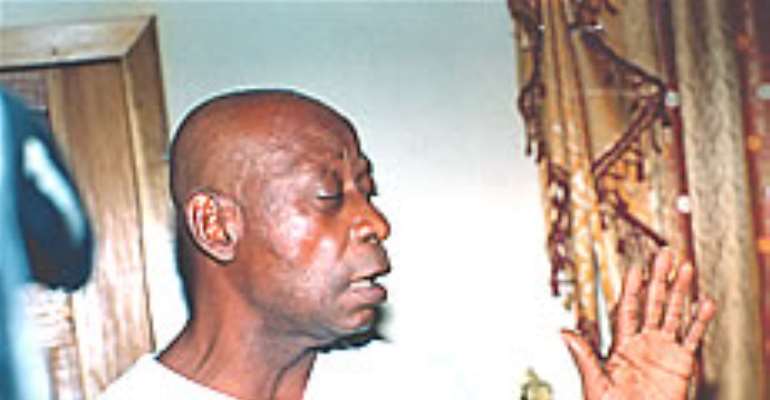Tribute to the Kennery King

For several weeks, late Orlando Owoh monitored progress reports on the man he confirmed to Admiral Dele Abiodun that he would have voted for it he was an American, Barack Obama.
Unfortunately, he didn't live to see the emergence of his most preferred candidate as the first blackman ever to be elected as president of the world's most successful democracy, the United States of America.
It is not yet known whether he ever met the Kenyan-American during his musical tours of US, but family members said he even prayed for the success of Obama in the elections on November 4, 2008.
Call it premonition, it's so heart-wrenching that Kennery music exponent, another true African, Dr. Oladipo Stephen Owomoyela, bowed out of this world about the time his man, Obama, emerged victorious at the US presidential election that day.
Born to a carpenter in Osogbo 76 years ago, Orlando loved music as his family was filled with musicians. “I used to watch my dad play, and I also listened to my mother and grandmother sing folk songs, so the interest just developed,” he said.
For Owoh, however, it took determination and zeal to snap out of his dad's hands as he never wanted any of his sons to sing.
In between studies and rehearsals with Kola Ogunmola Theatre Group, which he joined as a musician, Orlando still took time out to hone his boxing skills.
He even used Sunny Ade as his sparing partner once a while. “Ask him, anytime he misbehaves and I get to hear of it, I always waited for him to come to our house in Osogbo where I forced him to take boxing lessons from me,” he once said.
The musician who was sure he would have won Nigeria gold medals at the Olympics in the 60s, eventually dumped sports for music.
Despite his father's several attempts to muzzle his interest in music, Orlando always sought out theatre troupes that always visited Osogbo on tours.
His big break came when he had the rare opportunity of performing before the Queen of England when Her Royal Majesty first visited Nigeria in 1956.
He joined the Army for a while, but returned home following a blast that not only affected his ears, but also scared his face while on battle field during the Civil War.
“I couldn't hear well for months, just as I couldn't see distant objects. Because of these, the Army asked me to go back home as they had no need of me again,” he said.
After his three years stint with the Nigerian Army, Orlando returned to music and came out with “Oriki Ilu,” which earned him international fame.
From then, it had been no looking back. In 1972, Orlando was given the honourary doctoral degree in music and the name Doctor Orlando stuck since. This was at a graduation ceremony for Nigerian Law students in London.
Since 1958, Orlando's music has continuously captured independent-minded Nigerians, especially the youths who identified with his African highlife music, its history and tradition.
In the 80's, his near-arrest experience over marijuana possession, which eventually had the Babangida regime arrest his wife, Muyibat, and put in jail for several months, resulted in the runaway hit, Alagbon, which further endeared him to the hearts of Nigerians.
Despite her harrowing experience in the prison, the eldest wife of the late musician described her 30-year marital life with Orlando as “fulfilling.”
His unique brand of highlife was admired not only by his young fans, but King Sunny Ade and Evangelist Ebenezer Obey who had, on different occasions, praised Owoh for the richness and depth of his lyrics.
Owoh relapsed, after recovering from a stroke attack two years ago, only to die at the Lagos State University Teaching Hospital in Lagos three hours before the emergence of Obama as US president.
